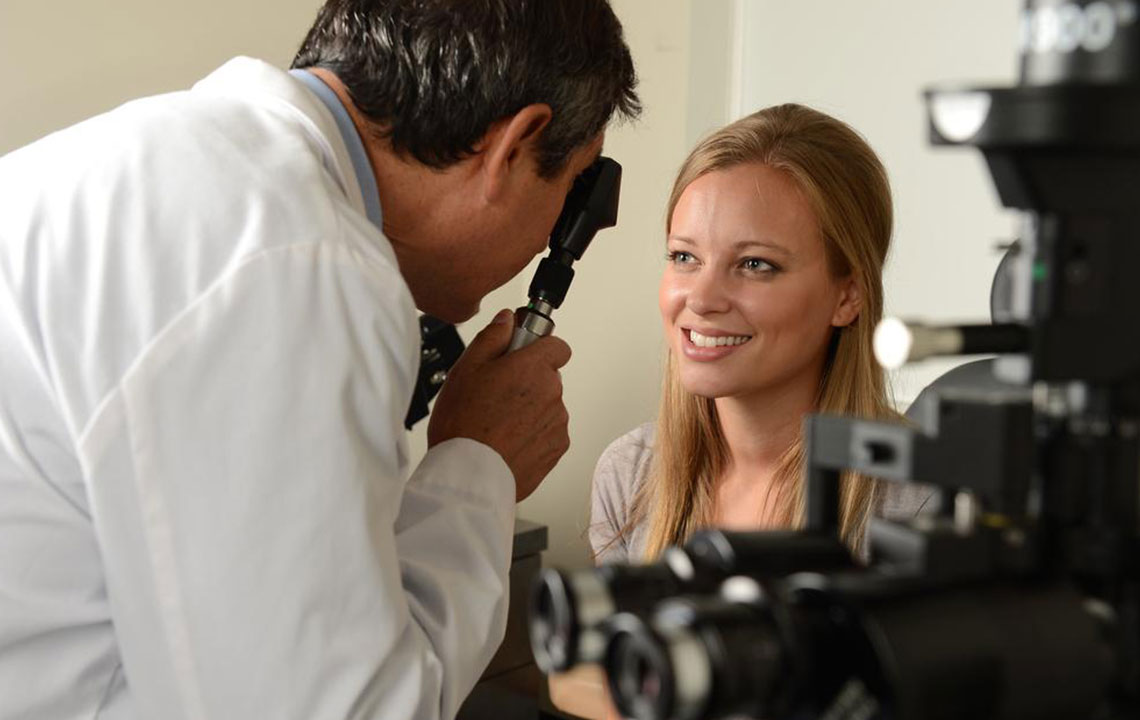Comprehensive Guide to Choosing a Reputable Eye Surgery Center for Vision Correction
This comprehensive guide offers essential tips and criteria for selecting a reputable eye surgery center. Covering professional credentials, patient feedback, communication, evaluation procedures, postoperative care, financial options, and facility standards, it helps patients make informed decisions for safe and successful vision correction surgeries like LASIK and cataract removal. Prioritizing safety and quality ensures optimal outcomes and long-term eye health.

Comprehensive Guide to Choosing a Reputable Eye Surgery Center for Vision Correction
Undergoing eye surgery, especially procedures like LASIK, is a significant decision that can greatly improve your quality of life by correcting vision problems such as nearsightedness, farsightedness, and astigmatism. Additionally, surgeries like cataract removal can help restore clear vision for millions of patients worldwide. Given the complexity and the precision required for these procedures, selecting the right eye surgery center is paramount. Not only does this choice impact the success of the operation, but it also influences your overall safety and post-operative recovery. This comprehensive guide offers valuable insights and detailed criteria to assist you in choosing a high-quality, trustworthy eye surgery clinic that meets the highest standards of care and safety.
1. Verify Professional Credentials and Recognitions
When considering an eye surgery center, the first step is to confirm the credentials of the surgeons and medical staff. Reputable clinics ensure their surgeons possess valid medical licenses issued by authorized health authorities. It is crucial to confirm that your surgeon is licensed and has specialized training in ophthalmology and vision correction procedures like LASIK, cataract surgery, or corneal transplants. Many countries and regions also provide certification through recognized ophthalmological associations, such as the American Academy of Ophthalmology or similar bodies, affirming their expertise.Additionally, check whether the clinic has accreditation from established international or national healthcare accreditation organizations. For instance, in certain countries, accreditation from agencies like the Joint Commission International (JCI) or the Mexican General Health Council (CSG) indicates adherence to strict safety and quality standards. These credentials are vital indicators of a clinic's commitment to maintaining high standards of patient care, safety protocols, and effective technology use.
2. Gather Personal Recommendations and Read Patient Reviews
Personal experiences shared by friends, family, or acquaintances who have undergone eye surgery can be incredibly helpful in narrowing down your options. Genuine referrals provide insight into the quality of care, surgeon expertise, and post-operative support that you might not find through advertisements alone. In addition to word-of-mouth referrals, online reviews and ratings are valuable resources. Many patients share their experiences on health forums, review websites, and social media platforms, providing transparent insights into the clinic's service quality, staff friendliness, cleanliness, and overall patient satisfaction.When reviewing online feedback, pay attention to recurring themes such as complications, staff professionalism, post-surgery follow-up, and clarity of communication. Multiple positive reviews from verified patients often indicate a trustworthy and competent facility. Conversely, consistent negative feedback about particular issues should raise red flags, prompting further investigation before making a decision.
3. Effective Communication and Compassionate Patient Care
During your initial consultation, assess how the medical team interacts with you. A reputable eye surgery center emphasizes clear, honest, and thorough communication. Your surgeon should take the time to explain the procedure, risks, expected outcomes, and post-surgery care in simple language, ensuring you fully understand your treatment plan. Compassionate, patient-centered care reduces anxiety and builds trust—crucial factors for a successful surgical experience.Observe whether the staff listens attentively to your concerns, answers questions comprehensively, and shows genuine interest in your wellbeing. The attitude and professionalism of the entire team—including nurses, technicians, and administrative personnel—play a significant role in making your visit comfortable and stress-free. Good communication also includes providing detailed preoperative instructions, setting realistic expectations, and outlining the recovery process clearly.
4. Comprehensive Preoperative Evaluation
A responsible clinic will conduct a thorough preoperative assessment to determine your suitability for surgery. This involves detailed eye examinations, including corneal mapping, measuring refraction errors, assessing eye health, and screening for conditions such as dry eye or glaucoma. Some clinics might also perform additional tests like pachymetry (corneal thickness measurement) and wavefront analysis.An accurate diagnosis is critical, as it informs the surgeon's decision to proceed and helps customize the procedure for optimal results. Beware of clinics that rush through evaluations or perform superficial assessments, as a thorough preoperative workup is essential to minimize risks and avoid complications. Remember, the primary goal is to ensure your safety and the best possible outcome.
5. Postoperative Support and Personalized Recovery Plans
Successful eye surgery is not solely about the procedure itself but also about effective postoperative care. Top clinics design personalized recovery protocols, including scheduled follow-up visits, medication management, and guidance on activity restrictions. Adequate support during recovery ensures that any complications are detected and addressed promptly.Ask whether the clinic provides comprehensive postoperative services such as eye drops prescriptions, pain management, and assistance with transportation if needed. During your consultation, inquire about the availability of emergency contacts or support teams for after-hours concerns. Facilities that prioritize post-surgery care demonstrate their commitment to patient safety and satisfaction.
6. Financial Options and Insurance Compatibility
Eye surgeries can be a significant financial commitment, so understanding payment options is crucial. Check whether the clinic accepts popular insurance plans like IMSS, Seguro Popular, or private health insurance that might cover part of the procedure. Additionally, ask about financing plans or installment payment options offered by the clinic, which can make the procedure more affordable.Obtain a detailed cost estimate upfront, including consultation fees, preoperative tests, the surgery itself, anesthesia, medications, and postoperative visits. Comparing prices among reputable clinics is wise, but avoid choosing solely based on cost; quality and safety should always come first. Transparent pricing and flexible financial arrangements help prevent financial stress during recovery.
7. Facility Standards, Hygiene, and Technology
The physical environment of the clinic plays a vital role in ensuring safety and quality care. Make sure the facility maintains high standards of cleanliness and hygiene, with modern equipment that meets current technological standards. Visit the clinic beforehand if possible, or review online images and virtual tours to assess cleanliness, organization, and technological infrastructure.State-of-the-art technology, such as femtosecond lasers for LASIK or advanced diagnostic tools, can significantly improve surgical precision and outcomes. Comfortable waiting areas, well-maintained surgical rooms, and sterilization protocols are indicators of a professional, safety-conscious establishment.
In addition to safety concerns, consider the availability of qualified surgeons and support staff. A clinic with multiple options ensures that if your preferred surgeon is unavailable, you can be scheduled with another qualified professional without compromising quality.
In conclusion, choosing the right eye surgery center requires careful research, verification, and consideration of multiple factors. Prioritize safety, qualifications, patient feedback, and facility standards to ensure a successful procedure and optimal visual recovery. Making an informed decision now can lead to lasting benefits and a lifetime of improved vision and quality of life.





